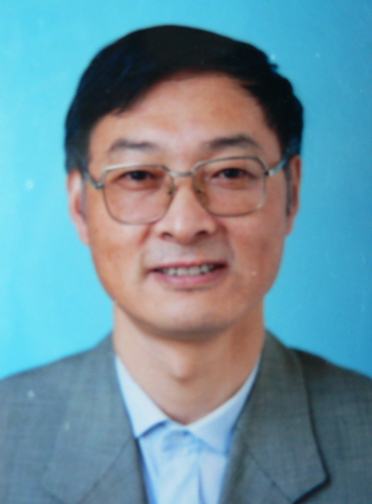|
IEEE
ICMA 2007 Conference
Plenary
Talk 5
Design
Practice of Ship Fin Stabilizers and Applying Techniques of Ship Motion Control
Hongzhang
Jin
Chair
Professor
AutomationCollege
Harbin Engineering University
Harbin, China 150001
Tel:86-451-82519954,
Fax:86-451-82519954,
E-mail:jinhz@hrbeu.edu.cn

Abstract:
Nowadays
more and more ship motion control systems are applied in various ships. Among
ship motions, roll motion causes serious damages to the equipments of ship and
its performance, many efforts have been made to invent or create some equipment
to weaken
these bad effects. However, few types of equipment have had the same impact on
roll stabilization as the active fin stabilizers.
In
recent years much research has been conducted to improve the fin stabilization
systems. Some results on fin stabilizers have been obtained by analyzing the
classical roll motion model. In particular, based on this classic motion model,
recently we have investigated issues of dynamics lift of ship fin stabilizers
by using towing tank test results of fin model.
As
ship roll parameters have heavy uncertainties, we must deal with them in fin
stabilizer designs. In fact the biggest difficulty in the design is how to deal
with the uncertainties. Some control theories, such
as adaptive control and robust control, are used to solve the problem and
achieved success in some control systems. But they can not deal with
uncertainties of ship stabilizer control well.
The difficulty of uncertainties existed in fin stabilizer design also happed in
other ship motion control system designs.
Some new opinions about design methods of fin stabilizer and ship motion
control are proposed.
To
improve the performance of the fin stabilizers, lift feedback fin stabilizers
are then designed. In this talk, we analyze
defects of angle feedback fin
stabilizer caused by the hydrodynamic coefficient and show the control
principle of the lift feedback fin stabilizer system. Because the lift is
measured directly for the lift feedback fin stabilizer, the error caused by the
hydrodynamic coefficient in calculating the lift can be avoided. The error
found in the former research is amended and a new structure of the system is
presented that can be applied in engineering. The main technical difficulties,
such as lift sensor and signal processing, have been studied.
It
is well known that fin motions are essentially nonlinear with many nonlinear
uncertain factors. The classical linear model is only an approximate model
which omits some nonlinear uncertain factors to easily calculate lift
coefficients of the fins. In fact, since the linear relationship between lift
of the fin and the fin angle is obtained by the static hydrodynamic experiment,
some redundant errors are inevitable compared with the dynamic hydrodynamic
experiments. We give restoring roll moment for the ship obtained by
hydrodynamic experiment and control compensation
control of two pair of fins.
To
overcome the uncertainties in the system an intelligent PID controller is
investigated. The application of the controller in fin stabilizer is effective
to stabilize the ship because the ship model uncertainties are taken into
consideration. All the results and data obtained in this talk are experimented
in the towing tank and fin stabilizer test tables,
therefore there have actual significance.
Hongzhang
Jin
is the chair professor of Control Theory and Control Engineering, in the
Automation College, Harbin Engineering University. He also holds the Guest
Professorship Chair in the Dalian Maritime University. He graduated from Navy
Engineering Department, Harbin Engineering Institute then joined the faculty of
the Department of Automation at Harbin Shipbuilding Engineering Institute in
1970. He was a visiting scholar at University of Strathclyde, UK in 1986-1987.
He served as a professor, then the chair professor of Control Theory and
Control Engineering in the Automation College, Harbin Engineering University from
1994 and from 2000. He also served as the
Academic Committee Director of Ship Control Engineering Laboratory
from 2003. At Harbin Engineering University, he teaches courses in ship control
engineering, computer control
and robust control. He has being engaged in ship motion control research for 40
years and designed 20 types fin stabilizers which were equipped in more than
200 different ships home and abroad. His current research interests are ship
control theory and engineering, complex control system theory, and industry
control systems. He has published more than 120 papers in archival journals and
refereed conference proceedings,
also published 5 books on ship control theory and engineering. He received the
Award of Expert of Chinese Government Special Allowance(1994), the CSSC
Outstanding Expert Award(1996), the National Sci-Tech Conference Award(1978),
the National Sci-Tech Progress Award(II)(1985), the National Sci-Tech Progress
Award(III)(1991), and other 5 Sci-Tech Awards
from Commission of Science Technology and Industry for National Defense, and
Heilongjiang Province. He served as Technical Editors of the Navy Electronic
Technology Journal, Navy Science and Technology Journal, and Applied Technology
Journal. He is a Senior Member,
and the vice director of Reliability Engineering of Chinese Society
of Marine Engineering and Navy Architect.
|